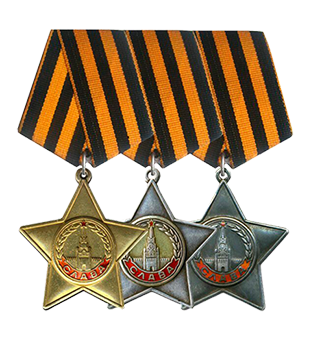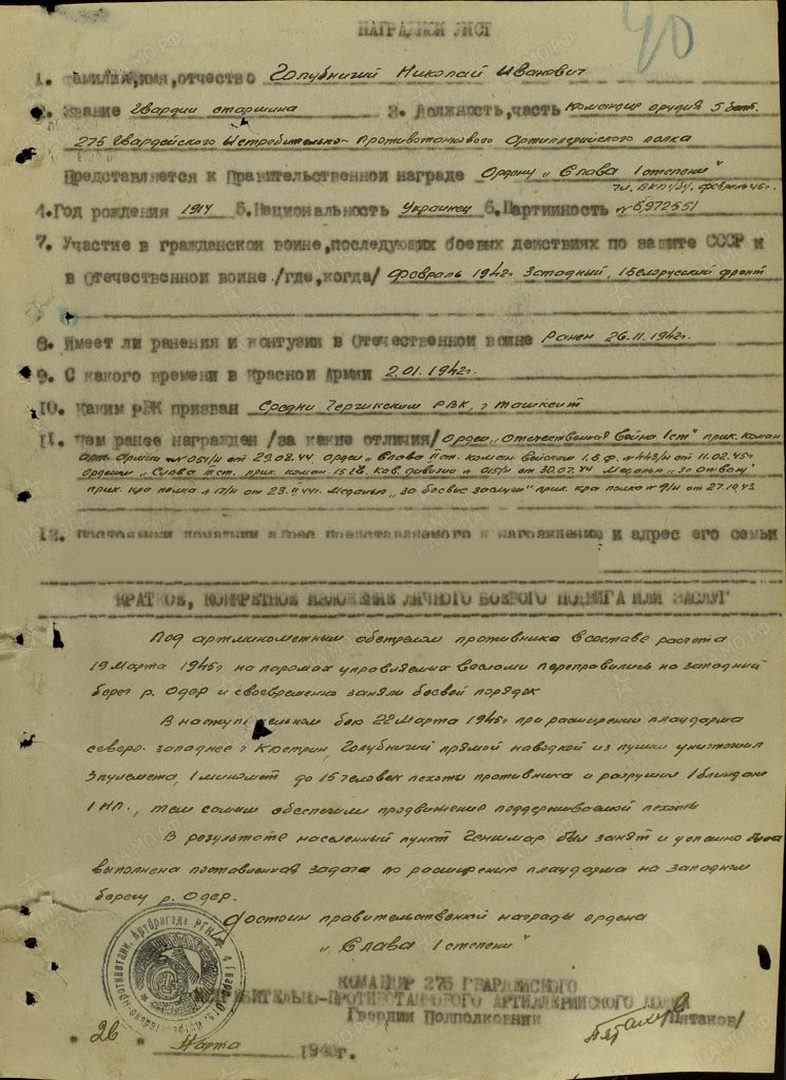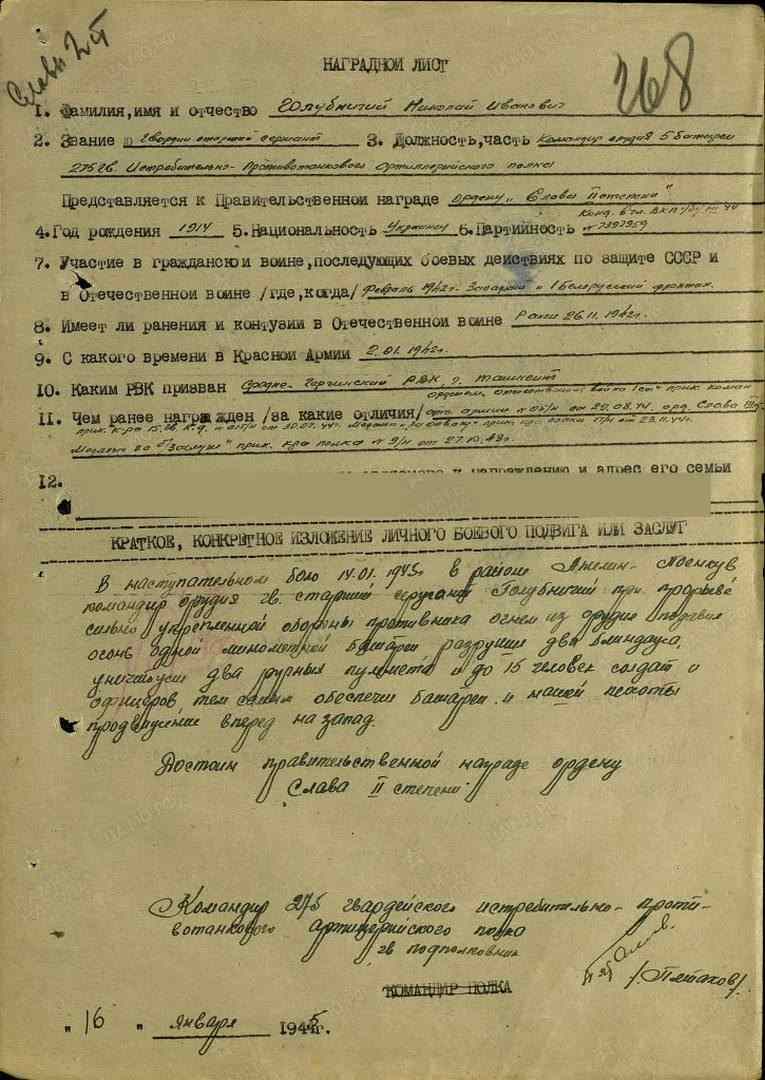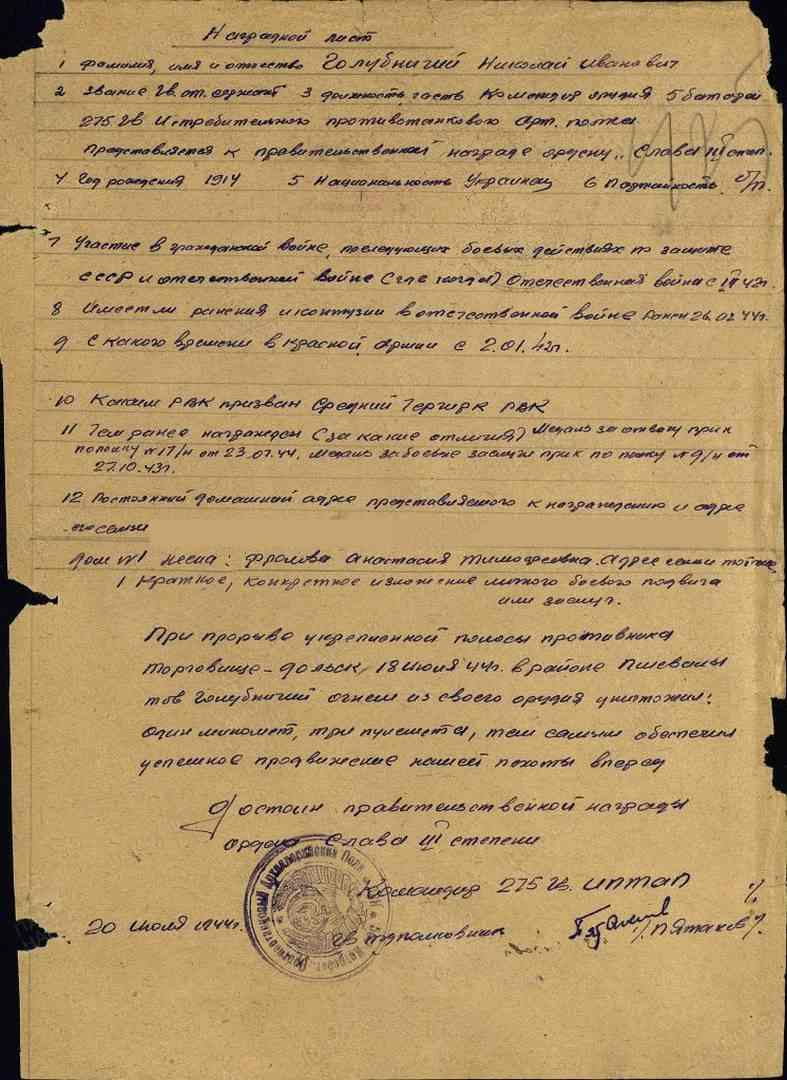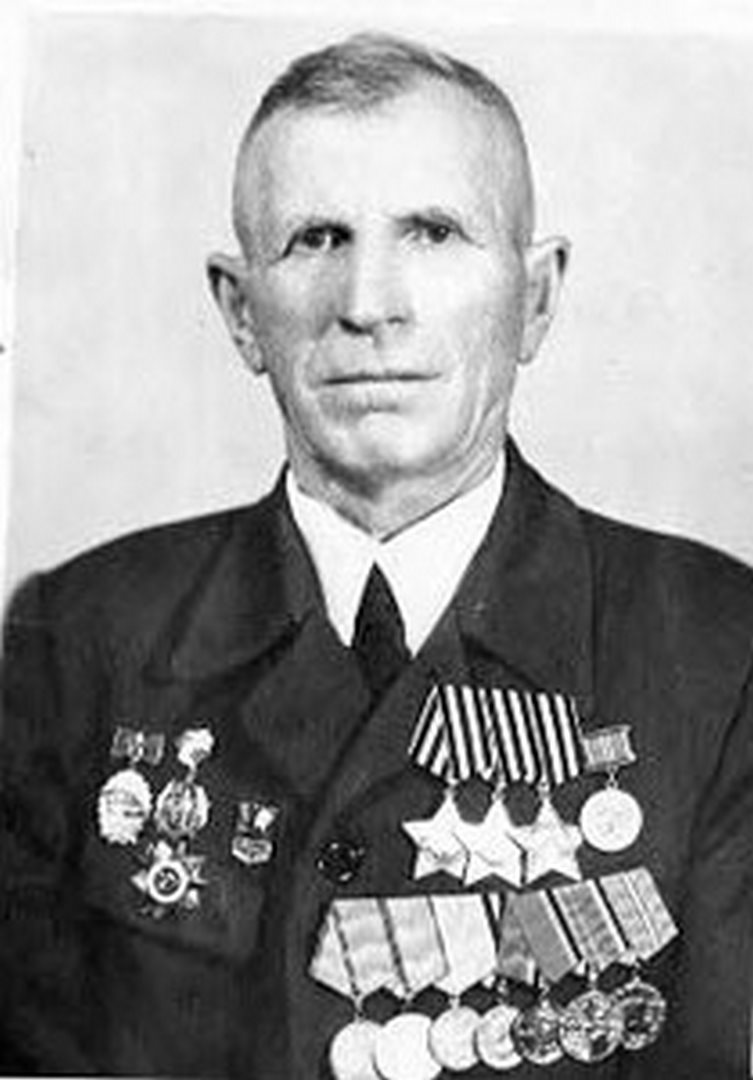
GOLUBNICHIY NIKOLAY IVANOVICH
staff sergeant, a participant in World War II, Full cavalier of the Order of Glory (31.05.1945)
He was born on July 8, 1914 in the village of Dobrovolie, now Bliznyukovsky district of Kharkov region, in a peasant family. Ukrainian. Primary education. In 1931 he graduated from a vocational school in the city of Kramatorsk (Donetsk region, Ukraine). In 1933-1936 he worked in fisheries on the Sea of Azov.
In 1936 he left for Uzbekistan. He worked as a collective farmer in the Kirov agricultural cartel in the Sredne-Chirchik district of the Tashkent region.
In 1937-1939 he served in the Red Army. In January 1942 he was again drafted into the army by the Sredne-Chirchik district military commissariat.
Since February of that year he participated in battles with invaders. By March 1943 – Red Army soldier Golubnichy, shooter of the 9th Rifle Company of the 303rd Rifle Regiment of the 69th Rifle Division. On March 2, at a critical moment of the battle, he took over the command of the squad, the field into the battle of the fighters, was wounded, but continued to fire at the enemy.
By the fall of 1943, he fought as part of the 275th Guards Fighter-Anti-Tank Artillery Regiment of the 4th Guards Separate Fighter-Anti-Tank Artillery Brigade of the Reserve of the Supreme High Command. He was the sergeant of the battery, intelligence officer, commander of the calculation. As part of the brigade, he fought on the Central, Belorussian and 1st Belorussian fronts, participated in the liberation of Left-Bank Ukraine, in the Gomel Rechitsa, Lublin-Brest, Warsaw-Poznan, East Pomeranian and Berlin offensive operations. He again distinguished himself in the battles during the crossing of the Dnieper River, as the sergeant of the battery timely supplied the personnel with hot food, twice crossed the river with ammunition. Corporal Golubnichy was awarded the medal “For Courage”.
On July 18, 1944, during the breakthrough of the enemy’s defense 27 km southwest of the city of Kovel (Volyn Region of Ukraine), the guard sergeant Golubnichy destroyed the mortar and 3 machine guns of the enemy with guns, thereby ensuring the advance of the infantry. By order of parts of the 15th Guards Cavalry Division dated July 30, 1944, Guard Sergeant Nikolai Golubnichy was awarded the Order of Glory of the 3rd degree.
In July 1944, in battles on the bridgehead on the western bank of the Vistula River, the Guard, Sergeant Golubnichy, when repulsing the enemy’s counterattacks, rolled out his gun to an open firing position and shot Nazis point blank. In these battles, he destroyed 2 guns, 2 mortars, 3 machine guns and up to 30 Nazis. By his actions, he secured the bridgehead. He was presented with the Order of the Red Banner, was awarded the Order of the Patriotic War of the 1st degree.
On January 14, 1945, in an offensive battle near the village of Paenków (12 km west of the city of Pulawy, Poland) of the guard, staff sergeant Golubnichy suppressed enemy mortar battery fire, destroyed 2 dugouts, destroyed 2 firing points and up to 15 Nazis.
By order of the troops of the 1st Belorussian Front dated February 11, 1945 of the Guard, Staff Sergeant Nikolai Golubnichy was awarded the Order of Glory of the 2nd degree.
On the night of March 20, 1945, the foreman Golubnichy, with the calculation under enemy fire, crossed the Oder River and took up a firing position on the bridgehead 9 km. northwest of the city of Kyustrin (Kostrzyn, Poland). On March 22, when expanding the bridgehead with direct fire, he broke an observation post, destroyed 3 machine guns, a mortar, and exterminated over 15 Nazis. He ensured the advancement of the infantry and the occupation of the village with his actions. The gunner Golubnichy made his last shots in Berlin.
By decree of the Presidium of the Supreme Soviet of the USSR dated May 31, 1945 “For exemplary performance of command assignments in battles against Nazi invaders”, the guard sergeant Nikolai Golubnichy was awarded the Order of Glory of the 1st degree.
In November 1945 he was demobilized. He returned to Uzbekistan. He lived in the city of Toy-Tepa now Urtachirchik district of Tashkent region.
He died on December 24, 1977. He was buried in the cemetery of Toy Tepa.

